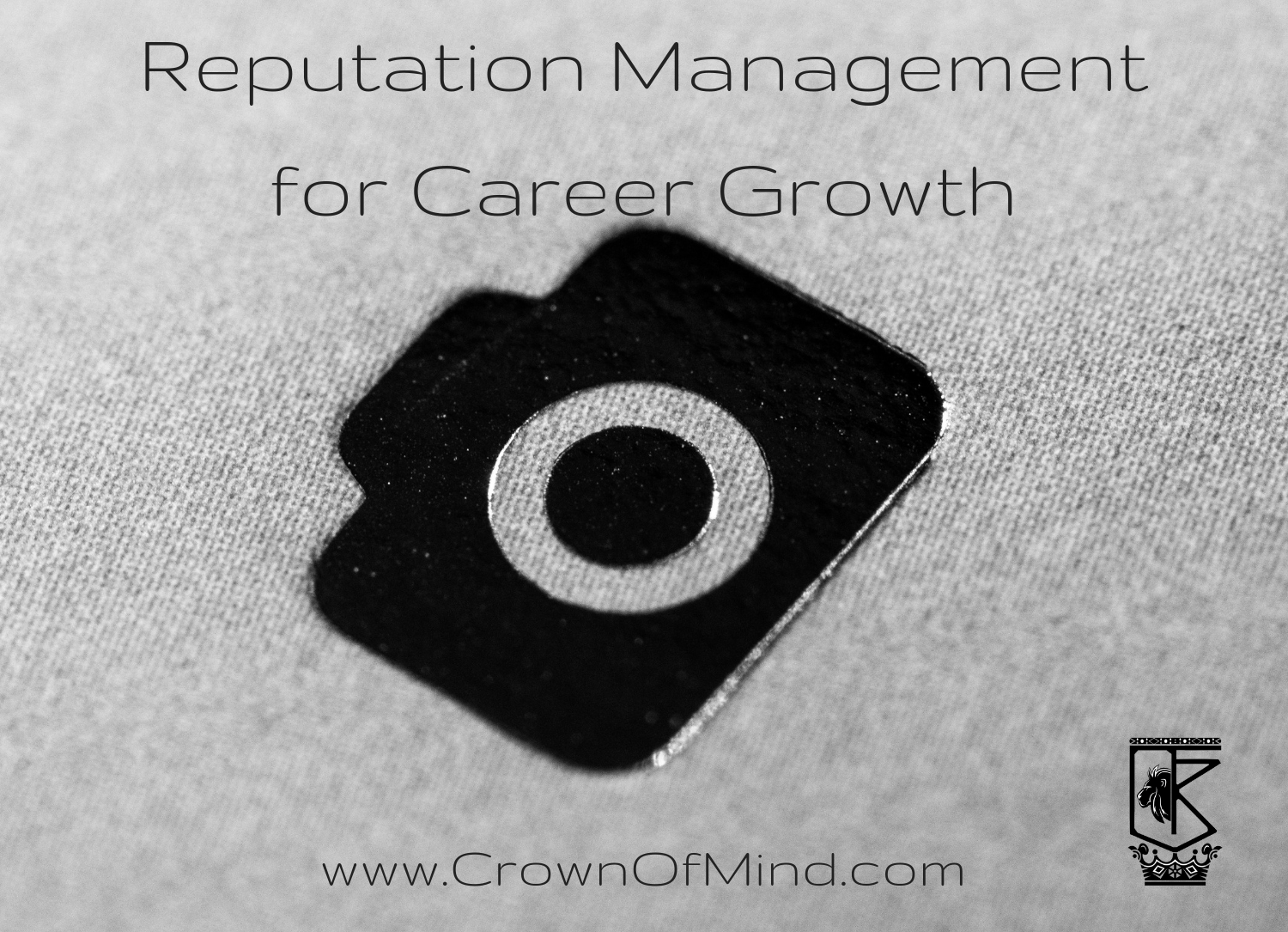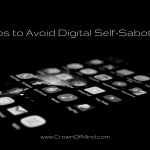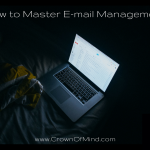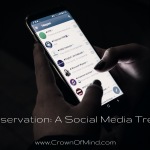Strategic planning is at the core of career reputation management. Preparation. Positioning. Thinking not just of how circumstances are now but how they can be in the future. How a professional intends to direct that future.
This connects quite conveniently to the knowledge of time in metaphysics, which proposes that there really is no sense of linear time except for when we’re attached to the material. Bodies. Ego.
In order for me to see a line through time, following my day’s trail for example, I need to be connected enough to this reality to remember the event series that led to this point. I need to be grounded. Ego intact, playing its role as an identifier, this experience should pose no problem. In a not-grounded state, being able to follow this trail, seeing the connections between past, present and potential futures becomes blurred. If I then aim to examine a consequence and try to understand what caused it, I have difficulty because my connection to the trail was weak.
All to say…
Our social media presence is a digital timeline that influences reputation management.
When we’re not aware of this, we post with a freedom sense that all that can be shared should be, no matter how potentially offensive or damaging to self and Self. Being able to download an app, create an account and immediately begin sharing everything that’s on our minds creates an illusion of freedom. But there is a cost and it’s called data. These data are not private; they’re captured by the companies creating the platforms, saved to be utilized by them to create new products for people to re-consume or pay for.
Aside from that, these data also can be used by employers that increasingly size up candidates by more than the resume and in-person interview. Reputation management is for those who care about being in control of the energy they radiate off and online, so opportunities are not sabotaged.
Millennials tend to receive the attack brunt when it comes to social media misuse, but I want to broaden that cohort and include Gen X,Y,Z and everyone else. Generally, we’re becoming too comfortable with posting outlandish behavior that we’d prefer potential employers not see. But they are seeing, because they’re using as many means as possible to acquire a wide profile on the people they consider hiring.
Is Social Media Private?
I remember hosting a workshop for students on this topic and one made a strong stance: he should be able to have a private and personal life. What he posts online should be his own business and everyone should mind their own. Perhaps it should be this way but it is not. This is an example of the blurred ego, unable to see the timeline connection from past actions to future consequences.
Social media is not private. It’s called social media for a reason.
Once taking ownership of this understanding, we are better positioned mentally to take actions that support our professional relationship growth. We’re also better positioned to align our internal state with what we project outward.
A Few Ways Employers Check Up on Your Reputation Management
Your LinkedIn Profile
They look for relevant experience, skills, etc. pertaining to the organization. Non-job professional contacts may check you out there just to learn more about what you do. They may also look at your articles, posts you’ve commented on or liked. Your recommendations are also open for evaluation.
Facebook / Instagram / Twitter / Pinterest
Yes all of these are on the table. If you have the accounts, they will be searched. The content you provide there will further add to the profile they conceive.
Important: Their conception of you may not be true, but what they experience from your external digital world (your projection) creates what they presume to be true. This is why you want to align the inner Self and the outer self.
Some of these channels may not connect directly to jobs, but they’re looking for an understanding of your interests, who and how you communicate, how you present yourself in pictures.
Your Website
If you have this, it serves as a portfolio for employers an non-job contacts to check out.
Anything That’s Posted on the Internet
Wherever it is, if it’s searchable, it’s on the table for evaluation.
Reputation Management: Watch Out for These
Social media connections who tag you. When you’re tagged on Facebook for example, the post shows up on your personal wall if you don’t use the setting to ask you for permission first. Your name is also searchable with that post. Posts out of alignment with the management you’re establishing, tell your connections to un-tag you. It doesn’t have to be offensive, “Hey XYZ, thanks for the tag but I’m working on my brand right now and would prefer if you checked in with me before tagging. Thank you.”
Sliding into people’s DMs. If you’re “sliding into people’s DMs” on Instagram and it’s not warranted, I recommend you quit it and just send a cordial introduction message. Accept if there’s no response or interest in communicating. Ungracious “sliding” can and has been screenshot, particularly by women to expose guys who are foolish enough to send vulgar messages. Bye Felipe created a movement out of it. Nothing like losing your reputation over lack of messaging self-control.
Taking explicit group photos and videos. This one’s old-school but still practiced I observe. Be mindful of your photographic escapades. Know that once something is digitized there’s potential for it to be copied, stolen, posted.
Google yourself. What shows up? How many pages present you? You can see for yourself how you list in the rankings. Do this for the Web, Image and Video options. You’ll see what employers see when they do search your name.
Social media is not your personal photo gallery. This goes back to the idea that social media is private media. If you treat it like a personal gallery, you must be prepared for the world to enter it.
What isn’t digitized can’t be shared en masse. Most of the time. A deep subject on its own, there are psychological, emotional and spiritual elements involved regarding the desire (or perceived need) to post every experience online. To snapshot every moment and rather than keep it to self, to expose it for all to see. It prompts a self-examination about what we are after when we do post chosen content. One anecdote for study is the teenage influencer industry as shown by Follow This on Netflix. Search up the episode “Teen Boss.”
Questions to consider before posting.
Why is this important to share?
What value does the audience receive from posting this?
What do I gain from posting this?
Am I being emotionally, psychologically, spiritually fulfilled by posting this?
If I applied for a job, would what I post sabotage it?
Would my shares jeopardize creating a professional relationship?
Am I setting an example as a mentor / leader / parent by posting this?
What kind of legacy do I want to leave? Is this post creating that?
Would I be fine with my mentee / team / children posting the same?
Do I accept that whatever I post exists on a server somewhere even if I delete it?
Do I understand and accept that social media is not private media, therefore I am subject to social consequences?
Is this post going to advance me or set me back?
Reputation Management in Your Control
With the many tools available to create our own platforms, we essentially become our own businesses, brands, talismans, symbols by default. Each post, save, comment, like or video expands our Internet real estate, offering a broader trail for people to discover. This can be used to advantage, in a way that supports holistic development in a positive direction. It starts with examining each of these mediums then seeing them as a collective portfolio. Based on your direction, MasterLearn can assist you with intentional strategy.






